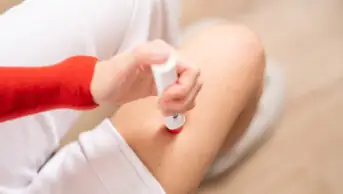The Joint Committee for Vaccine and Immunisation (JCVI) has recently announced that the vaccine that could stop people from dying from human papilloma virus (HPV)-related cancers will not be given to boys (
The Pharmaceutical Journal online, 20 July 2017).
This vaccine is already available country-wide to girls. But HPV-related cancers, notably oral and anal cancers, are now among the fastest growing cancers in the developed world and are among the only cancers that are increasing in incidence every year. In addition, five of the six cancers caused by HPV are not routinely screened for. The UK has decided to reject the chance to vaccinate boys and protect them from such devastating and life-threatening diseases.
It seems obvious that, since these cancers are preventable and they are on the rise, we should extend the programme to protect all children against them. HPV-related cancers now make up 5% of all cancer — cancers that could be eradicated if boys, as well as girls, were vaccinated.
HPV is a sexually transmitted, ubiquitous virus. If you have had sex you have probably had or have the HPV virus. Most people will clear it but, for some, it will turn into cancer. There is no screening programme for five of the six HPV-cancers so vaccination is our only chance of prevention. The decision to vaccinate a only particular group of people against the virus when we all have an equal chance of getting it is ridiculous.
There are 11 countries around the word, including Australia, Israel and the United States, that vaccinate boys as well as girls. For the UK, which is looked upon as a world leader in healthcare provision, to reject the opportunity to extend the programme seems to be a shortsighted move more about saving money than investing in public health.
The argument that vaccinating boys would not be cost effective does not stack up. It is estimated that it would cost £20m–22m a year at most to vaccinate boys — a figure dwarfed by the costs of treating HPV-related cancers and warts. An estimated £57.1m is spent treating head and neck cancer in both men and women (in England), almost £7m on treating men with anal cancer and an estimated £58.44m a year treating anogenital warts (in both men and women).
There is an argument that vaccinating girls should be protection enough. It is not. It fails to take into account men who have sex with men and men who have sex with women who are too old to have had the vaccination, have opted out of being vaccinated or women from different countries where the vaccine is not available.
There is no acceptable reason for excluding boys from a vaccination that could protect them from cancer. Up to 2,000 men this year in the UK will have the news broken to them that they have a HPV-related cancer and that number will continue to rise until boys are also vaccinated.
Cancer will always be a cruel and devastating disease. However, it is even harder to accept a loved one becoming seriously ill or dying when you know that it could have been prevented by a simple vaccination.
Tristan Almada
Founder
The HPV and Anal Cancer Foundation


